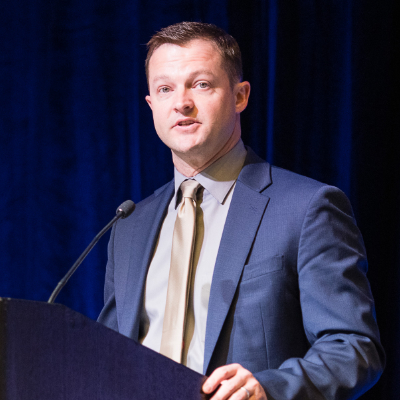WASHINGTON, D.C., U.S. — Increased use of ethanol globally and its benefits to the environment and human health was the hot topic during the first day of the Global Ethanol Summit in Washington, D.C., U.S. The event had attendees from more than 60 countries and is jointly sponsored by the U.S. Grains Council (USGC), Growth Energy and the Renewable Fuels Association (RFA).

“In the last 18 months, 11 markets — nearly all in which the council has active ethanol engagement — made announcements of new or updated ethanol policies with a role for trade,” said Ryan LeGrand, president and chief executive officer of the USGC, who delivered a keynote address that was translated into nine languages for attendees. “All of us are united by the goal of finding transport energy solutions to make our environmental and human health commitments a reality while also making economic sense. Our presence in Washington, D.C., this week is a testament to the fact that we are collectively concerned about the long-term health of our citizens and the environment and recognize the real economic opportunity that’s available through greater adoption of ethanol.”
The meeting began with a pulse-check on U.S. ethanol supply and demand, including a rundown of policy drivers that could affect the outlook for the commodity, including calls by an increasing number of nations to identify permanent solutions for climate change, cleaner air, improved health and less expensive fuel.
Case studies from Brazil and Canada were utilized to highlight existing ethanol realities and new benchmarks for the environmental benefits it can provide. Additional input from the European Union’s experience with ethanol rounded out the morning sessions.
The afternoon included two panels focused on the chemical properties and societal impacts of ethanol use, as well as experiences with ethanol in India and Nigeria. Speakers addressed the intersection between biofuels use and electrification of transport fleets as well as the benefits specifically to women and children of ethanol for cooking fuel.
Miguel Ivan Lacerda Oliveira, director-biofuels for Brazil’s Ministry of Mines and Energy, emphasized the benefits outlined by the day’s presenters, saying, “The future is ethanol, and why is that? Because there is no future outside of ethanol.”
In his comments, LeGrand stressed that the USGC and its partners in the ethanol export market development are ready to help the attendees who are considering expanded ethanol use operationalize their plans.
“My hope for you is that no one walks away from this meeting wondering if ethanol will work for your country,” LeGrand said. “The answer, as we hope to show, is yes.”
The Global Ethanol Summit continues tomorrow with an address by U.S. Department of Agriculture Deputy Secretary Stephen Censky who will speak about global collaboration and trade of ethanol.





